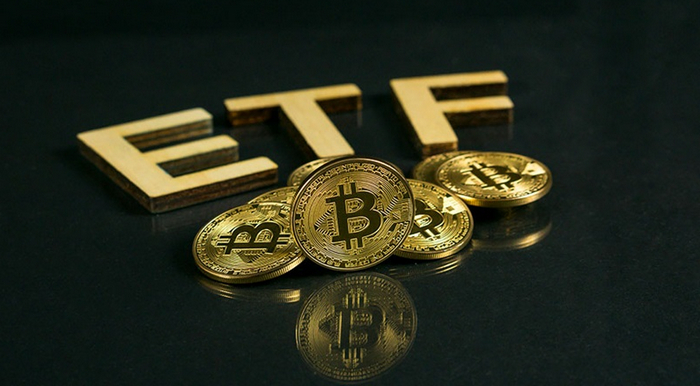-
 Bitcoin
Bitcoin $84,458.0914
0.91% -
 Ethereum
Ethereum $1,594.6498
1.40% -
 Tether USDt
Tether USDt $0.9997
-0.02% -
 XRP
XRP $2.0953
1.29% -
 BNB
BNB $585.8219
1.36% -
 Solana
Solana $133.4769
7.01% -
 USDC
USDC $0.9999
-0.01% -
 Dogecoin
Dogecoin $0.1563
2.13% -
 TRON
TRON $0.2445
-3.65% -
 Cardano
Cardano $0.6161
2.06% -
 UNUS SED LEO
UNUS SED LEO $9.4444
0.55% -
 Chainlink
Chainlink $12.4662
2.64% -
 Avalanche
Avalanche $19.2395
2.48% -
 Toncoin
Toncoin $2.9466
3.63% -
 Stellar
Stellar $0.2370
1.87% -
 Shiba Inu
Shiba Inu $0.0...01190
2.80% -
 Sui
Sui $2.0985
1.05% -
 Hedera
Hedera $0.1588
1.25% -
 Bitcoin Cash
Bitcoin Cash $330.6320
3.49% -
 Polkadot
Polkadot $3.6363
3.70% -
 Litecoin
Litecoin $74.7529
-0.92% -
 Hyperliquid
Hyperliquid $16.4922
10.38% -
 Dai
Dai $1.0000
-0.01% -
 Bitget Token
Bitget Token $4.3637
1.70% -
 Ethena USDe
Ethena USDe $0.9990
-0.02% -
 Pi
Pi $0.6051
-3.15% -
 Monero
Monero $217.1749
-0.79% -
 Uniswap
Uniswap $5.2140
1.44% -
 OKB
OKB $51.2977
-1.94% -
 Pepe
Pepe $0.0...07271
2.79%
Is there a risk of fraud in a Bitcoin ETF?
Due to the inherent price volatility of Bitcoin, investors may be more susceptible to fraudulent activity, including market manipulation and cybersecurity breaches in Bitcoin ETFs.
Nov 02, 2024 at 11:40 am

Is there a risk of fraud in a Bitcoin ETF?
1. Understanding Bitcoin ETFs
- Bitcoin ETFs (Exchange-Traded Funds) are investment vehicles that track the price of Bitcoin.
- They provide investors with exposure to Bitcoin without having to directly purchase the cryptocurrency.
2. Potential Risks of Fraud in Bitcoin ETFs
- Market Manipulation: Fraudsters may utilize tactics such as wash trading or spoofing to manipulate the price of Bitcoin, potentially affecting the performance of the ETF.
- Cybersecurity Breaches: Bitcoin ETFs rely on custodians to hold their Bitcoin assets, making them vulnerable to cyberattacks and theft.
- Regulatory Deficiencies: Regulations governing Bitcoin ETFs may still be evolving, leaving room for loopholes and potential abuse.
- Price Volatility: Bitcoin's inherent price volatility can increase the risk of fraudulent activity, as investors may be more susceptible to making impulsive decisions.
3. Mitigating Fraud Risks
- Due Diligence on Issuers: Investors should thoroughly research the issuer of the ETF to assess their track record, reputation, and adherence to regulations.
- Robust Custodians: ETFs should utilize reputable and secure custodians with robust cybersecurity measures to protect Bitcoin assets.
- Transparent Reporting: ETFs should provide regular and transparent reporting of their holdings, trading activity, and any potential conflicts of interest.
- Regulatory Oversight: Regulatory agencies must continuously monitor and enhance the regulatory framework for Bitcoin ETFs to prevent fraud and protect investors.
4. Additional Protection Measures
- Considered Investors: Investors should be aware of the risks associated with Bitcoin ETFs and invest only what they can afford to lose.
- Diversification: Adding Bitcoin ETFs to a diversified portfolio can help reduce the overall risk, as other assets can offset potential losses.
- Beware of Scams: Investors should be wary of phishing emails, fraudulent websites, or unsolicited investment offers promising unrealistic returns in Bitcoin ETFs.
Conclusion
While Bitcoin ETFs offer potential benefits, investors must be aware of the risks of fraud. By conducting thorough research, seeking reputable issuers, and implementing additional protection measures, investors can mitigate these risks and make informed investment decisions regarding Bitcoin ETFs.
Disclaimer:info@kdj.com
The information provided is not trading advice. kdj.com does not assume any responsibility for any investments made based on the information provided in this article. Cryptocurrencies are highly volatile and it is highly recommended that you invest with caution after thorough research!
If you believe that the content used on this website infringes your copyright, please contact us immediately (info@kdj.com) and we will delete it promptly.
- Bitcoin (BTC) to $300,000 Looks Unstoppable—Here’s the Chart Proof
- 2025-04-17 18:15:14
- On April 17, 2025, Jesse Pollak, a well-known voice in the Ethereum ecosystem, took to Twitter
- 2025-04-17 18:15:14
- Solinabot Records Over 2900 SOL in Processed Payouts on Telegram Since February Launch
- 2025-04-17 18:15:12
- Dogecoin (DOGE) May Transition to a Deflationary Model, Opening the Door to New Levels of Value
- 2025-04-17 18:15:12
- Fantasy.top: The Most Efficient and Entertaining Way to Do It
- 2025-04-17 18:10:12
- Superheaven haven't made music in 10 years, but they've been gaining prestige faster in recent years than they ever did
- 2025-04-17 18:10:12
Related knowledge

What is the difference in returns between long-term holding of a Bitcoin ETF and holding Bitcoin directly?
Apr 09,2025 at 04:15am
When considering the difference in returns between long-term holding of a Bitcoin ETF and holding Bitcoin directly, it's essential to understand the nuances and factors that affect each investment option. Both approaches have their unique advantages and potential drawbacks, which can significantly impact the overall returns over time. Understanding Bitc...

How is the "roll cost" of a futures Bitcoin ETF generated?
Apr 08,2025 at 01:22pm
The 'roll cost' of a futures Bitcoin ETF is a critical concept for investors to understand, as it directly impacts the performance of the ETF. In this article, we will delve into the mechanics of how the roll cost is generated, exploring the underlying processes and factors that contribute to this cost. Understanding Futures ContractsFutures contracts a...

How can the premium or discount of a Bitcoin ETF be narrowed through an arbitrage mechanism?
Apr 09,2025 at 12:07am
Arbitrage mechanisms play a crucial role in narrowing the premium or discount of a Bitcoin Exchange Traded Fund (ETF). Understanding how these mechanisms work can provide valuable insights into the dynamics of Bitcoin ETFs and their relationship with the underlying asset. This article will delve into the specifics of how arbitrage can be used to align t...

What factors affect the bid-ask spread of a Bitcoin ETF?
Apr 08,2025 at 08:50pm
The bid-ask spread of a Bitcoin Exchange Traded Fund (ETF) is a critical metric that investors and traders closely monitor. It represents the difference between the highest price a buyer is willing to pay (bid) and the lowest price a seller is willing to accept (ask). Several factors influence this spread, and understanding them can help investors make ...

How is the seed capital of a Bitcoin ETF used?
Apr 10,2025 at 02:15pm
The seed capital of a Bitcoin ETF plays a crucial role in the establishment and operation of the fund. This initial investment is used to create the fund's underlying assets, manage operational costs, and ensure the ETF can start trading on an exchange. Understanding how this seed capital is utilized provides insight into the mechanics of Bitcoin ETFs a...

What is the difference between "physically backed" and "synthetic" Bitcoin ETFs in terms of holding assets?
Apr 10,2025 at 04:56pm
Bitcoin Exchange Traded Funds (ETFs) have become a popular way for investors to gain exposure to the cryptocurrency market without directly owning the underlying asset. There are two primary types of Bitcoin ETFs: physically backed and synthetic. Understanding the differences between these two types, particularly in terms of how they hold assets, is cru...

What is the difference in returns between long-term holding of a Bitcoin ETF and holding Bitcoin directly?
Apr 09,2025 at 04:15am
When considering the difference in returns between long-term holding of a Bitcoin ETF and holding Bitcoin directly, it's essential to understand the nuances and factors that affect each investment option. Both approaches have their unique advantages and potential drawbacks, which can significantly impact the overall returns over time. Understanding Bitc...

How is the "roll cost" of a futures Bitcoin ETF generated?
Apr 08,2025 at 01:22pm
The 'roll cost' of a futures Bitcoin ETF is a critical concept for investors to understand, as it directly impacts the performance of the ETF. In this article, we will delve into the mechanics of how the roll cost is generated, exploring the underlying processes and factors that contribute to this cost. Understanding Futures ContractsFutures contracts a...

How can the premium or discount of a Bitcoin ETF be narrowed through an arbitrage mechanism?
Apr 09,2025 at 12:07am
Arbitrage mechanisms play a crucial role in narrowing the premium or discount of a Bitcoin Exchange Traded Fund (ETF). Understanding how these mechanisms work can provide valuable insights into the dynamics of Bitcoin ETFs and their relationship with the underlying asset. This article will delve into the specifics of how arbitrage can be used to align t...

What factors affect the bid-ask spread of a Bitcoin ETF?
Apr 08,2025 at 08:50pm
The bid-ask spread of a Bitcoin Exchange Traded Fund (ETF) is a critical metric that investors and traders closely monitor. It represents the difference between the highest price a buyer is willing to pay (bid) and the lowest price a seller is willing to accept (ask). Several factors influence this spread, and understanding them can help investors make ...

How is the seed capital of a Bitcoin ETF used?
Apr 10,2025 at 02:15pm
The seed capital of a Bitcoin ETF plays a crucial role in the establishment and operation of the fund. This initial investment is used to create the fund's underlying assets, manage operational costs, and ensure the ETF can start trading on an exchange. Understanding how this seed capital is utilized provides insight into the mechanics of Bitcoin ETFs a...

What is the difference between "physically backed" and "synthetic" Bitcoin ETFs in terms of holding assets?
Apr 10,2025 at 04:56pm
Bitcoin Exchange Traded Funds (ETFs) have become a popular way for investors to gain exposure to the cryptocurrency market without directly owning the underlying asset. There are two primary types of Bitcoin ETFs: physically backed and synthetic. Understanding the differences between these two types, particularly in terms of how they hold assets, is cru...
See all articles























































































